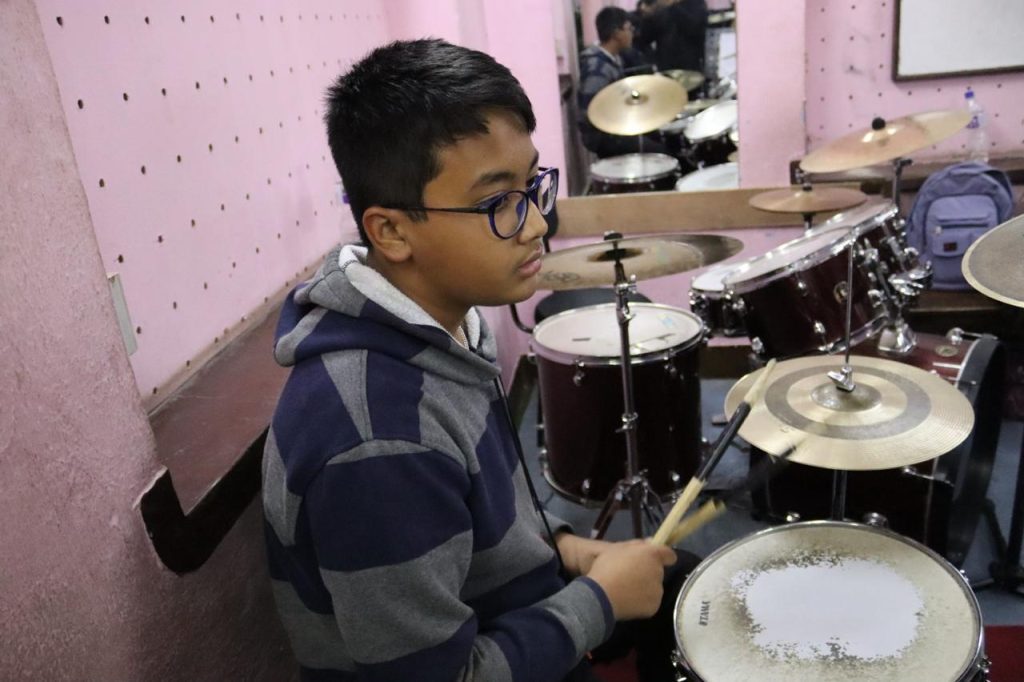Why You Should Learn Music: Unlocking the Benefits of Musical Education

Music is more than just a form of entertainment—it’s a universal language that transcends cultures and brings people together. Whether you’re interested in playing an instrument, singing, or composing, learning music has profound benefits that go beyond mastering notes and rhythms. From cognitive improvements to emotional well-being, here are some compelling reasons why you should learn music and how it can enrich your life.

1. Boosts Cognitive Skills and Brain Function
Learning music has been scientifically proven to enhance cognitive abilities. It stimulates areas of the brain responsible for memory, attention, and problem-solving. By practicing an instrument or learning music theory, you’re essentially giving your brain a full workout.
- How It Helps: Studies show that musicians often have better memory retention and stronger problem-solving skills. Learning to read sheet music, for example, involves decoding symbols and understanding timing—skills that can sharpen your overall intellectual abilities.
- Why It Matters: Whether you’re young or old, music can improve brain function and keep your mind sharp. Children who learn music often perform better in subjects like math and language arts, while adults can benefit from improved memory and focus.
2. Enhances Emotional Well-Being
Music is a powerful tool for emotional expression and healing. Learning to play an instrument or sing allows you to express emotions that might be difficult to put into words. It can also provide a sense of accomplishment and purpose, boosting self-esteem.
- How It Helps: Engaging with music can reduce stress, anxiety, and even symptoms of depression. Playing your favorite instrument or composing music can serve as a therapeutic outlet for your emotions.
- Why It Matters: Music taps into our emotions in a way few other activities can. Whether you’re using it to relax or energize yourself, the emotional connection you form with music is deeply enriching and can improve your overall mental health.
3. Improves Discipline and Patience
Mastering a musical instrument or becoming proficient in any musical skill takes time and dedication. Regular practice instills discipline and patience, as progress often comes gradually. These values are transferable to other areas of life, whether it’s in your studies, career, or personal growth.
- How It Helps: Learning music requires persistence. You’ll face challenges along the way, such as mastering difficult chords or perfecting a complex melody, but overcoming these hurdles will teach you the value of consistent effort.
- Why It Matters: The discipline gained from music education builds character and perseverance. It teaches you that hard work pays off, a lesson that’s invaluable in all aspects of life, from personal goals to professional endeavors.
4. Fosters Creativity and Self-Expression
At its core, music is an art form, and learning it nurtures creativity. Whether you’re improvising on a jazz solo, writing your own songs, or simply experimenting with sounds, music provides endless opportunities for creative exploration.
- How It Helps: Music allows you to break free from the rigid structures of everyday life and explore your artistic side. Improvising or composing helps develop lateral thinking, encouraging you to find innovative solutions to musical and even non-musical problems.
- Why It Matters: Creativity is not only important in the arts but in everyday problem-solving and critical thinking. Music fosters out-of-the-box thinking, allowing you to approach challenges with a more creative mindset.
5. Builds Social Connections
Music brings people together in unique and meaningful ways. Whether you’re playing in a band, singing in a choir, or attending music classes, learning music helps foster social connections and a sense of community.
- How It Helps: Playing music with others encourages teamwork, communication, and collaboration. In group settings, musicians must listen carefully to each other and adjust their playing accordingly, building strong interpersonal skills.
- Why It Matters: Music is a social activity that encourages empathy and cooperation. The shared experience of making music strengthens bonds between people and builds lasting relationships, creating a sense of belonging.
6. Enhances Cultural Awareness
Music is a reflection of cultural history and traditions. Learning about different musical styles opens a window into diverse cultures and perspectives. It helps foster a deeper understanding and appreciation for the world around you.
- How It Helps: Exploring genres such as classical, jazz, blues, or traditional folk music allows you to appreciate the rich history and cultural significance behind each form. It broadens your knowledge and makes you more aware of global traditions.
- Why It Matters: In an increasingly interconnected world, understanding different cultures is essential. Music is a great way to develop empathy and respect for other cultures, making you more open-minded and globally conscious.
7. Offers Lifelong Enjoyment
Music is a skill you can enjoy throughout your life. Unlike some hobbies that may fade over time, music is something you can continuously explore and improve upon. The joy of playing a favorite song, creating your own compositions, or even teaching others never grows old.
- How It Helps: Whether you’re playing for fun, performing professionally, or teaching others, music provides a lifetime of enjoyment and personal fulfillment. You can always set new musical goals, keep learning new skills, and find fresh inspiration.
- Why It Matters: Music is a hobby that grows with you, providing a source of joy, fulfillment, and personal growth at any stage of life. It becomes a lifelong companion that enhances your emotional and mental well-being.
Final Thoughts
Learning music is more than just picking up a new hobby—it’s a transformative experience that improves cognitive abilities, emotional well-being, creativity, and social connections. At Kaleidoscope Music Academy, we believe in the power of music to change lives. Whether you’re a beginner or an experienced musician, we offer classes that cater to your skill level and goals, helping you unlock your full potential.
Ready to start your musical journey? Join us at Kaleidoscope Music Academy and discover the countless ways music can enrich your life!